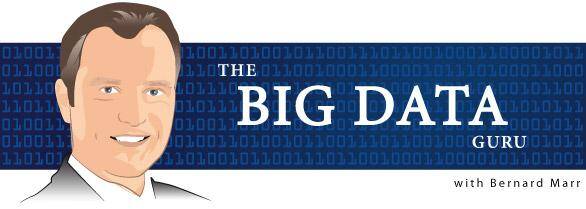
Big data is proving its usefulness in fields as diverse as improving healthcare and cutting crime. However, as with all game-changing technologies, it has the potential to be used for evil, as well as good.

Big data is proving its usefulness in fields as diverse as improving healthcare and cutting crime. However, as with all game-changing technologies, it has the potential to be used for evil, as well as good.
There are two common ways that “bad things” will often happen – malice, or maladministration. Sometimes big data technology is misused to deliberately cause harm to others, and sometimes it is simply used incorrectly, therefore causing harm.
Big Data Cyber Crime
For examples of malicious use, we can start with the huge growth in business that “cyber criminals” have enjoyed, thanks to the rapid spread of the internet. Hackers routinely plunder vast numbers of credit cards and bank account details by compromising home PCs with Trojan Horse software designed to spread from computer to computer harvesting the users’ details.
By monitoring all of the internet traffic in, and out, of a home network, huge amounts of data is collected, and sophisticated tools have been developed to quickly parse through this information in search of nuggets of cyber-gold, such as credit card numbers and online banking passwords.
Recently, the Cryptolocker virus – which took a more direct approach of simply encrypting data on an infected PC and blackmailing the owner into paying a fee to decrypt it – is through to have infected a quarter of a million PCs, and earned its operators around $27 million.
Equally profitable is targeting the other end of the network – instead of going after individual users one by one, several large-scale hacks have netted millions of customer details in one swoop, by attacking corporate networks. In August, the New York Times reported that one Russian hacking gang had stolen the details of 1.2 billion customers, from a number of undisclosed companies.
The Data-Haves and Have-Nots Divide
There are also concerns about big data analysis could give an unfair advantage simply because some can afford to implement it to a far higher standard than others. After all, knowledge is power – and now that knowledge is only limited by the amount of data you can afford to collect and process, the “haves” have yet another decided advantage over the “have-nots”.
Big data gives unprecedented ability to, for example, predict changes in financial markets, and the more you have to spend on your infrastructure for doing so, the more it is likely you will profit. For example, the US Farm Bureau Federation is pressing for tighter rules on what can be done with data gathered from food producers, because of fears it could be used to manipulate commodity markets.
Invasion of Privacy
However, invasion of privacy is probably the potential misuse which causes the most worries. While we may be reasonably comfortable that protections are in place when we give out personal details to companies we deal with, the fact is that laws change – and sometimes in ways that seem more likely to be of benefit to corporations, rather than consumers. While companies which handle our private data might be held to strict account today, who knows what changes may be around the corner? Lawmakers are often pressurized by industry to make changes to legislation because they will “benefit the economy” – an easy sell to the electorate, during times of economic austerity.
For example, an insurance company could theoretically argue that it would be in everyone’s interests for it to have full access to all of its customers’ medical records. This would vastly decrease the amount of red tape they deal with and cut fraudulent applications, potentially leading to lower overheads and allowing them to charge lower premiums.
However it would also allow them to run algorithms designed to weed out customers they won’t make a profit on with far more accuracy, and totally ignores the potential for abuse and prejudice that such a change in the law would create.
That situation may be hypothetical – but it is already known that insurance companies have used legally-obtained data to flag up customers as potentially at risk of obesity (and higher lifetime healthcare cost) because they have a history of buying plus-sized clothes.
And banks are known to use data including neighbourhood demographics when assessing the likelihood of a debtor repaying his overdraft, credit card or mortgage, which can potentially lead to situations where unfair foreclosures could be made.
It isn’t just companies, but governments, too, that are causing concern with their enthusiasm for data capture and analysis. Edward Snowden showed us that the scale of personal data gathering that intelligence services carry out on communications networks around the world falls well into the category of “big data”. They even wrote their own analytics tool – known and made available to the public as Accumulo – to help make sense of the endless amount of data they capture.
There’s a dark side to big data, certainly. As with any technological innovation, there will be those who choose to use it purely for the common good, and some purely for selfish gain – while the vast majority will be happy enough sitting somewhere in the endless grey area between. Just as was the case with the previous “big thing”, though – the internet – I am confident that, in the long run, the positives will far outweigh the negatives.
—–
As always, I hope you enjoyed my post. For more, please check out my other posts in The Big Data Guru column and feel free to connect with me via Twitter, LinkedIn, Facebook, Slideshare and The Advanced Performance Institute.